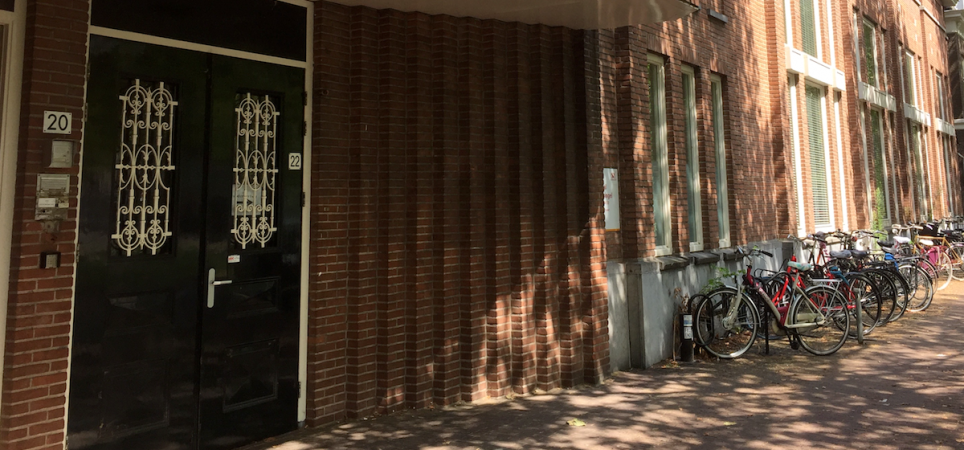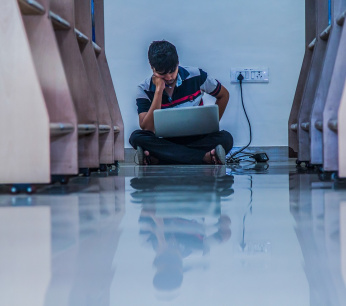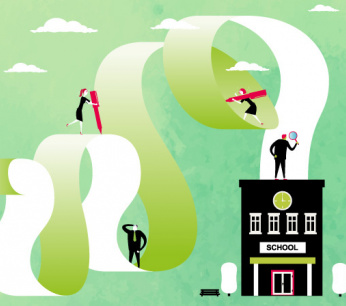Inspection report Svpo Utrecht: vulnerable students in trouble
The Education Inspectorate found fifteen shortcomings in the Utrecht School for Personal Education, which was declared 'very weak', in the areas of quality assurance, support for special needs students and social safety. The school management and the board have not sufficiently monitored the quality of education, according to the rock-hard report that will be published by the inspectorate next Friday.

Image: Editors Education Magazine
Last spring, the Education Inspectorate decided to conduct an extensive quality survey, partly in response to complaints from a number of parents. The Utrecht school for VMBO-T, HAVO and VWO opened its doors in the summer of 2017 and during the inspection investigation had approximately 160 students divided over two annual layers, each with five classes. The report adopted in mid-October 2019 would be published by the inspectorate at the end of November. But the school board is challenging the judgment and wanted to prevent disclosure with a go to court. However, the inspection gave it permission publish the report this Friday. (Update 10-1: The report is now available online.)
Causes
According to the highly critical report, which is in the hands of the Education Magazine, management has 'too limited insight' into the quality of education. 'The quality of the lessons and of the supervision shows serious shortcomings', the inspectorate notes. For students who fall behind, the guidance does not connect well. The emphasis is mainly on catching up with the backlog - if necessary on days off or during the holidays - and too little attention is paid to the underlying causes. Pupils with behavioral problems cause unrest in the classroom, partly because the often young and relatively inexperienced teachers receive little or no outside support due to the lack of an adequate care structure, according to the report. Teachers and parents who sound the alarm do not receive sufficient attention from the (part-time) school management and the board.
The social, psychological and physical safety of the pupils is not sufficiently guaranteed.
Because the school has not yet taken exams, the inspectorate has looked more closely at, among other things, the lesson content, supervision of students, quality assurance and social safety. Striking in the 44-page report is the restless atmosphere in the small school. Three different inspectors attended 21 classes, with all ten classes attended. 'In too many lessons it is restless and too little is learned', they conclude. According to the inspectorate, there are also a relatively large number of incidents at school, including bullying, vandalism and physical violence, and the response is not always satisfactory. The social, psychological and physical safety of the students is 'not sufficiently' guaranteed.
'When pupils need extra support, the school hardly offers it and uses the help of parties outside the school too little and too late,' says the report. Inspectors analyzed the files of ten students for whom there were indications of an additional support need. Many of them showed problematic behavior. "Usually the intervention is: addressing students about their behavior, contact with parents, sanctions, such as removal from class, suspension of school or denial of participation in activities and excursions."
Furthermore, the level of the teaching material is at havo/vwo level for all students, the inspectorate notes, including for students with a vmbo-t advice. 'Not all students can handle that.' Teachers experience insufficient control over important educational choices, such as the level of the assignments and the pace that students are expected to follow. 'In practice, choices, also on a pedagogical level, appear to be made at a central level.'
In practice, choices, also on a pedagogical level, appear to be made at a central level.
The school management and the board do not sufficiently engage in dialogue with stakeholders, as the Inspectorate puts it. Signals from parents are 'ignored, denied or trivialized by the school management and the board. The same applies to suggestions for improvement from teachers. Many do not experience the openness of the school management to make things negotiable. Some of them even experience a culture of fear. This hinders the school from making the necessary improvements in the quality of education.' The Inspectorate is also concerned about the turnover within the team: a large part of the staff left last summer. 'This is a risk to the quality and continuity of education.'
Solid
In a written response to the report to parents and staff last weekend, the school board opposes the criticism. 'Given the negative assessment, you almost wonder whether we should not close the school, but to ask the question is to answer it: No, because the assessment does not do justice to the school'. According to the board, the assessment - without measurable exam results - is subjective and based on a distorted picture. 'The small classes not only provide more individual attention, but also a better division of students according to pace and level. The mainly classroom-based education is aimed at a fairly solid curriculum, which lays the foundation for the good results that students can achieve.'
The mainly classical education is aimed at a fairly solid curriculum, which lays the foundation for the good results that students can achieve.
The board also considers the findings from before the summer holidays not applicable to the current school year. The unrest observed was related to a relatively large proportion of students with a care indication. According to the school board, the criticism was prompted by complaints from a number of parents who had wrong expectations. 'A year ago we started to emphasize in our communication that our small-scale school is very inclusive, but that the small class sizes are primarily intended to enable intensive and ambitious education.' The effect of this adjusted communication can be seen in the third group of students, according to the board. A school 'that, despite many special needs students and therefore unrest in the classroom, in many cases lifts the students above their primary school advice, does not deserve a negative assessment, but a compliment'.
The school board has officially objected to the report, forcing the inspectorate to reconsider its own judgment.


